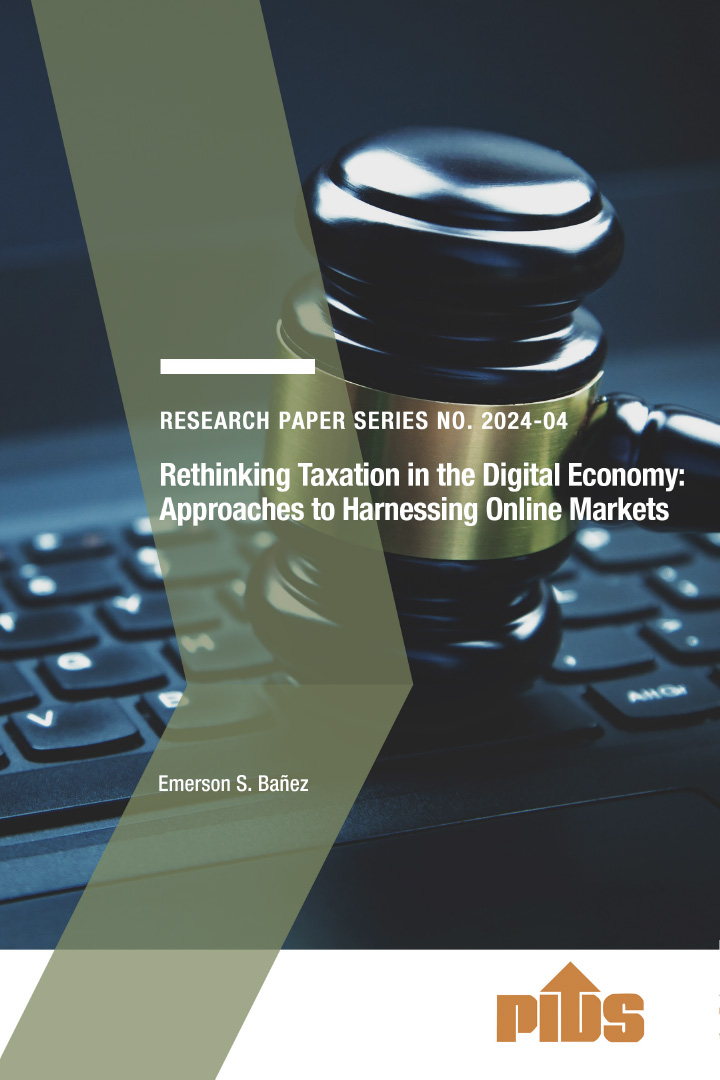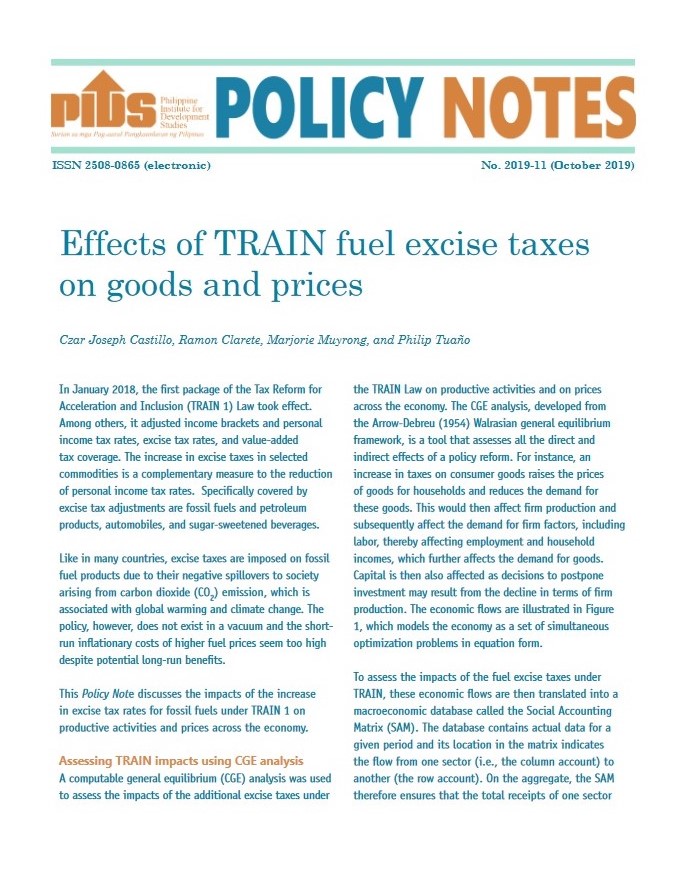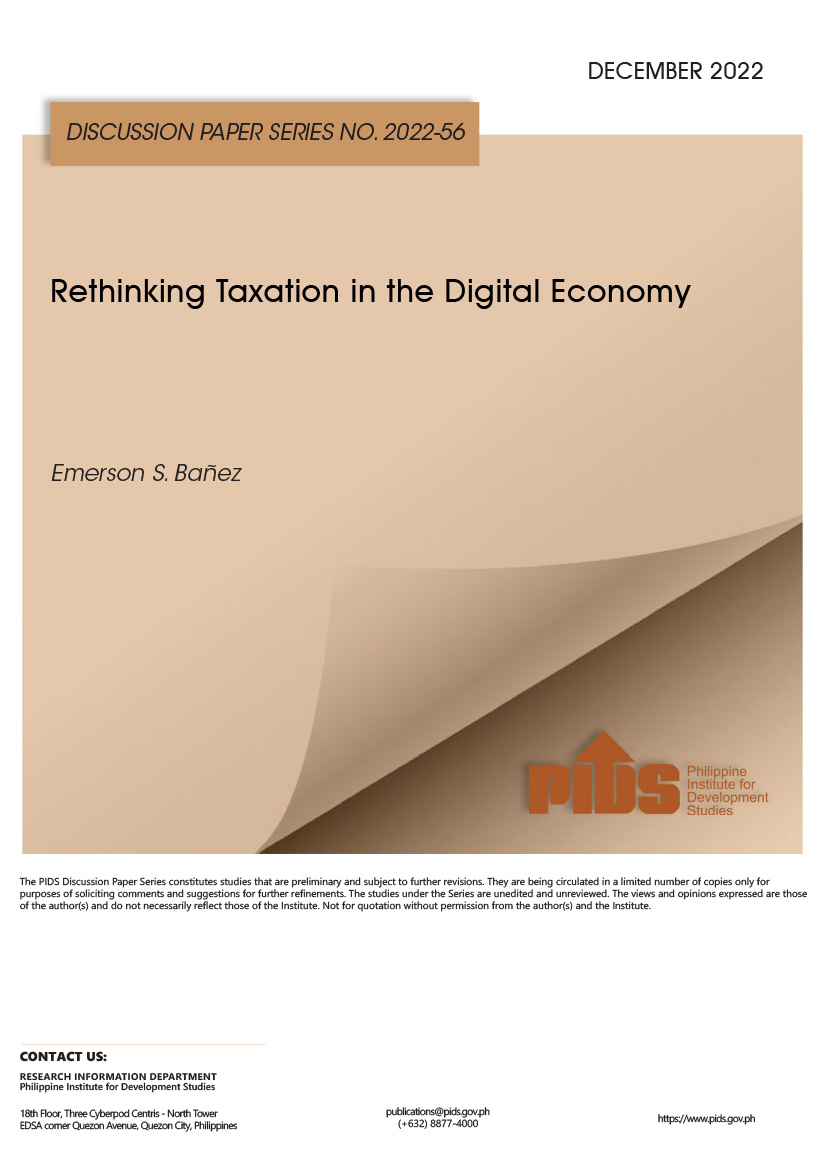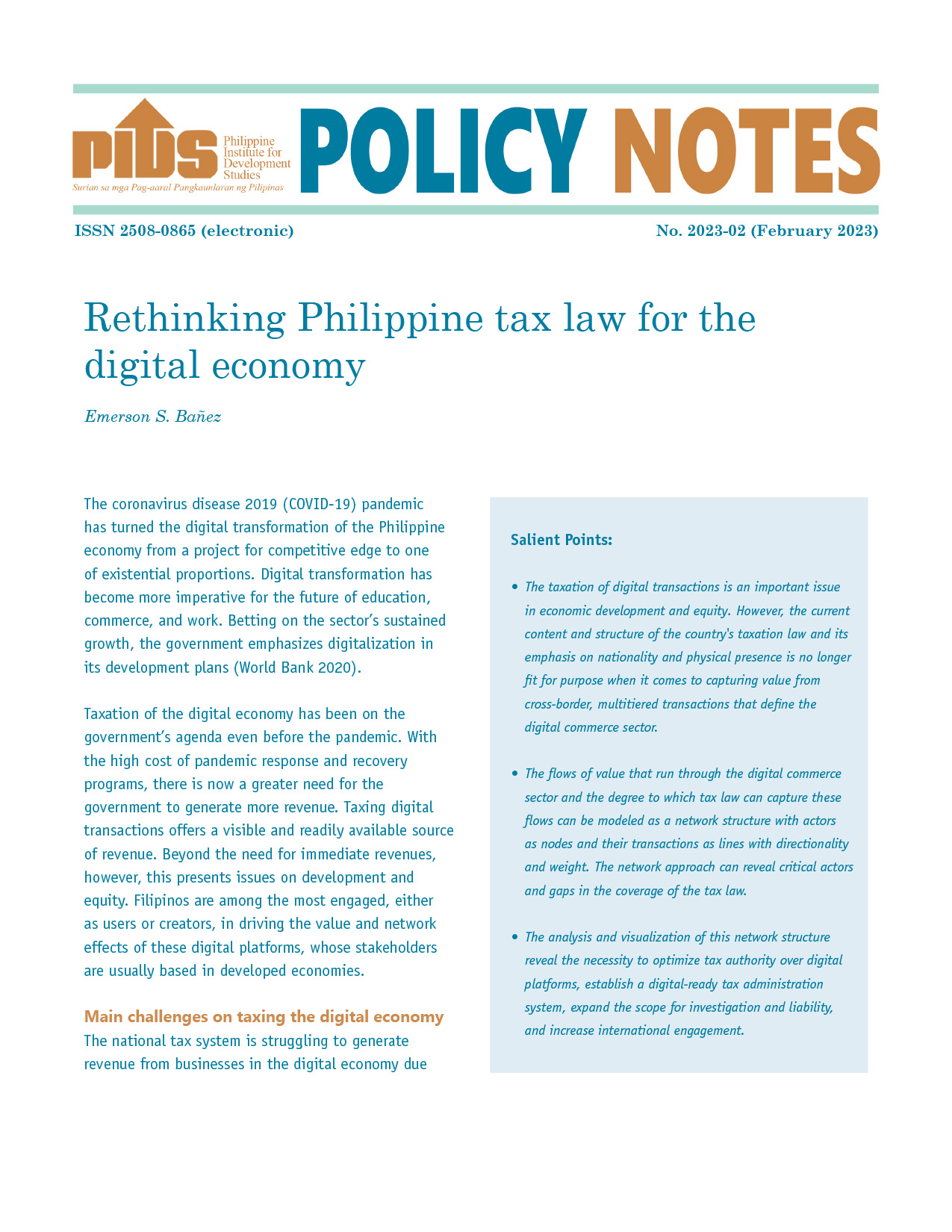The study aims to evaluate the country’s legal framework for taxing digital transactions, specifically the extent to which provisions of the law can map onto the value of digital markets. Based on findings on the structure of the digital commerce value chain and its possible interactions with both current and proposed tax regimes, the study provides four policy prescriptions: (a) optimize existing tax authority over platforms, (b) have a digital-ready tax administration, (c) expand the scope for investigation and liability, and (d) engage at the international level. Nonresident providers are the ones that have gained the most from digital markets while minimizing the tax impact of their activities. The Philippines should continue to explore multilateral options for the reallocation of taxing rights as well as address the issue of “base erosion and profit shifting”. Such options include regional tax treaties and the Organisation for Economic Co-operation and Development’s framework treaty. Efforts at negotiating and crafting the provisions should take into account the Philippines’ trading power relative to other countries, and its comparative ability to exercise jurisdiction.













